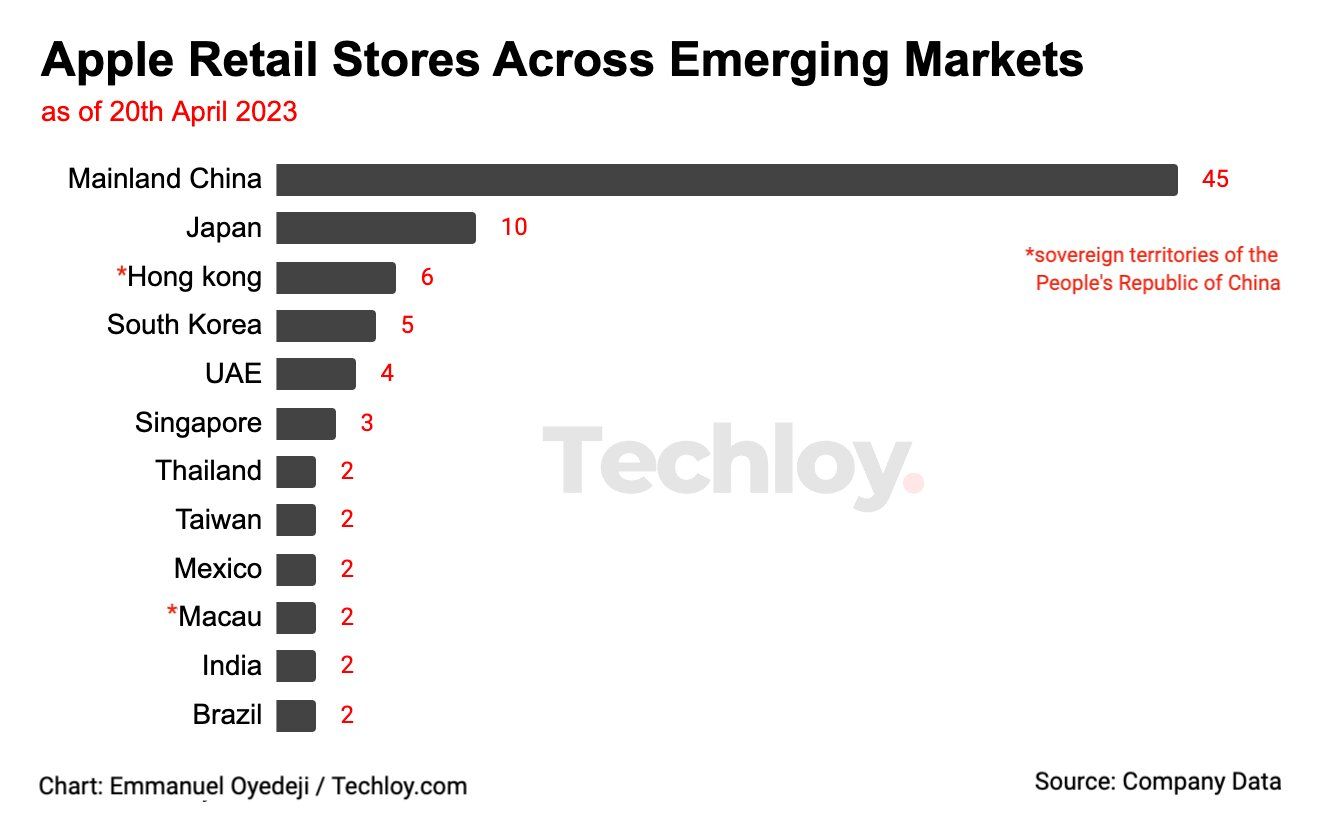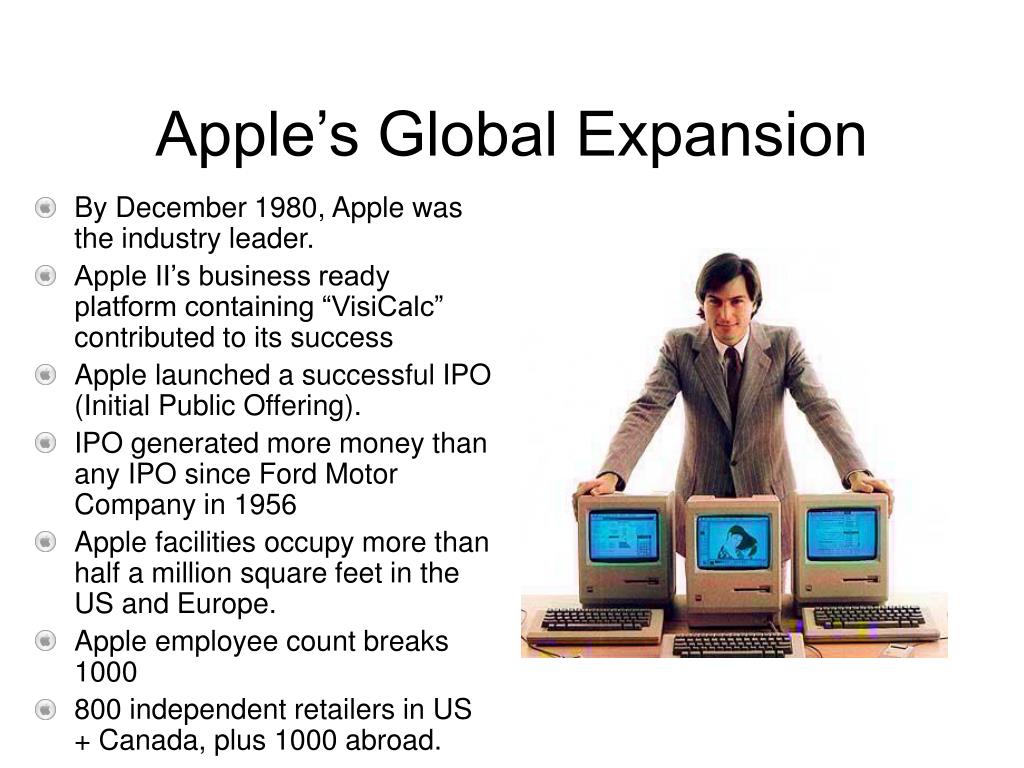Apple’s Global Expansion: A Bite of the Emerging Markets
Related Articles
- Using Apple’s Advanced Face ID On IPad Pro: Tips And Tricks
- Using Apple Watch Ultra 2 For Extreme Sports: A Complete Guide
- “Comparing Apple’s A17 Pro Chip To Qualcomm’s Snapdragon 8 Gen 3”
- Unlocking The Algorithm: Exploring Apple’s Use Of Machine Learning In App Store Recommendations
- Apple’s Approach To Accessibility: New Features In IOS 18
Introduction
Discover the ins and outs of Apple’s Global Expansion: A Bite of the Emerging Markets in this comprehensive review, filled with up-to-date insights.
Video about
Apple’s Global Expansion: A Bite of the Emerging Markets

Apple, the tech giant synonymous with sleek design and innovative products, has long been a dominant force in the developed world. But in recent years, the company has set its sights on a new frontier: the emerging markets. From bustling metropolises to rapidly developing nations, Apple is strategically expanding its retail footprint, aiming to capture a significant share of a burgeoning consumer base.
This strategic shift isn’t just about selling iPhones and Macs; it’s about building a brand experience, fostering customer loyalty, and solidifying Apple’s position as a global tech leader. This article delves into Apple’s ambitious plans for expanding its retail presence in emerging markets, exploring the challenges and opportunities that lie ahead.
The Allure of Emerging Markets: A Growing Appetite for Apple
The allure of emerging markets is undeniable. These regions boast rapidly growing economies, a burgeoning middle class, and a rising demand for technology. As incomes rise and access to the internet increases, consumers in these markets are increasingly eager to embrace the latest gadgets and digital experiences.
The Numbers Speak for Themselves:
- China: The world’s second-largest economy, China is already Apple’s largest market outside the US. With a vast population and a growing middle class, the potential for further growth is immense.
- India: Boasting a rapidly growing economy and a youthful population, India is a prime target for Apple’s expansion. The country’s smartphone market is booming, and Apple is poised to capture a significant share.
- Southeast Asia: This region, encompassing countries like Indonesia, Vietnam, and Thailand, is experiencing rapid economic growth and a burgeoning tech-savvy population.
- Africa: With a young and increasingly connected population, Africa presents a significant opportunity for Apple to expand its reach and tap into a new market.

Beyond the numbers, there are several key factors driving Apple’s interest in emerging markets:
- Brand Prestige: Apple enjoys a premium brand image that resonates with aspirational consumers in emerging markets. Owning an Apple product is often seen as a status symbol, reflecting a desire for quality and innovation.
- Strong Ecosystem: Apple’s integrated ecosystem of devices, services, and software offers a compelling value proposition to consumers. From iPhones and Macs to Apple Music and iCloud, users are drawn to the seamless experience and convenience.
- Growing Mobile Penetration: The rise of smartphones and mobile internet access in emerging markets creates a vast opportunity for Apple to capture a share of the growing mobile market.
A Strategic Approach: Tailoring the Apple Experience
Apple’s retail expansion in emerging markets is not a one-size-fits-all approach. The company is carefully tailoring its strategy to cater to the unique needs and preferences of each region. This includes:
1. Localization: Apple is adapting its products, services, and marketing to resonate with local cultures and preferences. This includes offering localized language support, payment options, and even product bundles tailored to specific market needs.
2. Strategic Store Locations: Apple is strategically selecting prime locations in bustling city centers and shopping malls, ensuring high visibility and accessibility. They’re also exploring unconventional locations, such as university campuses and airport terminals, to reach a wider audience.
3. Partnering with Local Businesses: Apple is forging strategic partnerships with local retailers and service providers to expand its reach and enhance customer service. This includes collaborating with mobile carriers, electronics distributors, and repair shops.
4. Leveraging Digital Platforms: Apple is utilizing its digital channels, including its online store and social media platforms, to connect with consumers in emerging markets. This allows them to reach a wider audience and provide personalized experiences.
5. Investing in Training and Development: Apple is investing heavily in training and development programs for its retail staff, ensuring they are equipped with the knowledge and skills to provide exceptional customer service and technical support.
Navigating the Challenges: A Balancing Act
While the opportunities are immense, Apple’s expansion into emerging markets is not without its challenges.
1. Competition: Apple faces stiff competition from established local brands and global players like Samsung and Huawei. These competitors often offer more affordable products and cater to specific local needs.
2. Infrastructure: The infrastructure in emerging markets can pose challenges for Apple. Limited internet access, unreliable electricity supply, and a lack of skilled labor can hinder operations and service delivery.
3. Regulatory Environment: Navigating the complex regulatory environment in emerging markets can be challenging. Apple must comply with local laws and regulations regarding data privacy, import/export restrictions, and intellectual property rights.
4. Cultural Differences: Understanding and adapting to cultural differences is crucial for success. Apple needs to be sensitive to local customs, beliefs, and values to avoid cultural faux pas and build trust with consumers.
5. Economic Volatility: Emerging markets are often characterized by economic volatility, which can impact consumer spending and affect Apple’s sales.
6. Counterfeit Products: The prevalence of counterfeit Apple products in emerging markets poses a significant challenge. Apple must actively combat counterfeiters to protect its brand reputation and ensure consumer safety.
A Glimpse into the Future: Building a Sustainable Presence
Apple’s expansion into emerging markets is a long-term strategy. The company is committed to building a sustainable presence in these regions, fostering growth and creating value for both its customers and its business.
Key Strategies for Long-Term Success:
- Investing in Local Talent: Apple is actively recruiting and training local talent to support its operations in emerging markets. This includes hiring engineers, designers, and retail staff who understand the local market and can provide culturally relevant service.
- Developing Innovative Solutions: Apple is investing in research and development to create products and services tailored to the specific needs of emerging markets. This includes developing affordable devices, localized apps, and mobile payment solutions.
- Building Community Engagement: Apple is actively engaging with local communities through educational programs, social initiatives, and partnerships with non-profit organizations. This helps to build trust and goodwill, creating a positive image for the brand.
- Embracing Sustainability: Apple is committed to operating sustainably in emerging markets. This includes reducing its environmental footprint, promoting ethical sourcing, and supporting local communities.
The Impact of Apple’s Expansion: Ripple Effects Across Emerging Markets
Apple’s expansion into emerging markets has a ripple effect, impacting various aspects of these economies:
- Job Creation: Apple’s operations create new jobs in emerging markets, both directly in its retail stores and indirectly through its supply chain partners.
- Economic Growth: Apple’s investments stimulate economic growth, boosting local businesses and creating opportunities for entrepreneurs.
- Technological Advancement: Apple’s presence encourages technological advancement, driving innovation and improving the quality of life for consumers.
- Education and Skills Development: Apple’s training programs and educational initiatives contribute to the development of a skilled workforce, empowering individuals and strengthening the economy.
A Tale of Two Cities: Case Studies of Apple’s Expansion
To understand the nuances of Apple’s expansion strategy, let’s take a closer look at two cities: Shanghai and Mumbai.
Shanghai:
- Prime Location: Apple’s flagship store in Shanghai is located on Nanjing Road, one of the city’s busiest shopping streets. This prime location ensures high visibility and accessibility to a large number of consumers.
- Local Customization: The store features a unique design that incorporates elements of traditional Chinese architecture and culture. It also offers localized products and services, such as Alipay payment options and Chinese-language support.
- Community Engagement: Apple hosts regular events and workshops in its Shanghai store, promoting creativity and innovation among local artists and developers.
Mumbai:
- Strategic Partnerships: Apple has partnered with local retailers like Croma and Reliance Digital to expand its reach in Mumbai. This allows Apple to access a wider audience and leverage existing distribution channels.
- Affordable Products: Apple has introduced more affordable iPhone models specifically for the Indian market, catering to a wider range of consumers.
- Digital Engagement: Apple is heavily investing in its digital channels in India, using social media and online advertising to reach a younger audience.
The Future is Bright: A Global Tech Leader Embraces Emerging Markets
Apple’s expansion into emerging markets is a strategic move that reflects the company’s ambition to become a truly global tech leader. By adapting its strategy to cater to local needs and preferences, Apple is poised to capture a significant share of these rapidly growing markets. The future looks bright for Apple as it continues to build its presence in these emerging economies, transforming the way consumers interact with technology and shaping the future of the tech landscape.
References:
Closure
Don’t miss out on future updates about Apple’s Global Expansion: A Bite of the Emerging Markets—we’ve got more exciting content coming your way.

















